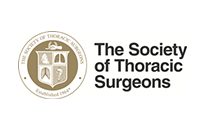Thymoma
The thymus is a small organ of the immune system located between the lungs. It produces white blood cells (WBC) and lymphocytes to help the body fight against foreign substances entering into the body. Thymoma is a rare tumor or a lump formed due to the abnormal growth of cells in the outer layer of the thymus. These cancerous cells grow at a very slow pace and rarely spread to the surrounding tissues or organs.
Some of the symptoms that may be caused by thymoma include a persistent cough, chest pain and difficulty in breathing. Thymomas may not produce immediate symptoms, but may be diagnosed during a routine chest X-ray.
Diagnostic tests used to detect thymomas include physical examination, imaging tests such as a CT scan, chest X-ray, PET scan or MRI, and biopsy (microscopic examination of the cancerous cells).
Thymoma is treated based on the stage of the cancer and your general health. The different types of treatments used to treat this condition include:
- Surgery: removal of complete or partial tumor
- Radiation therapy: using radiation to kill cancer cells
- Chemotherapy: using medication to stop the growth of cancer cells



















